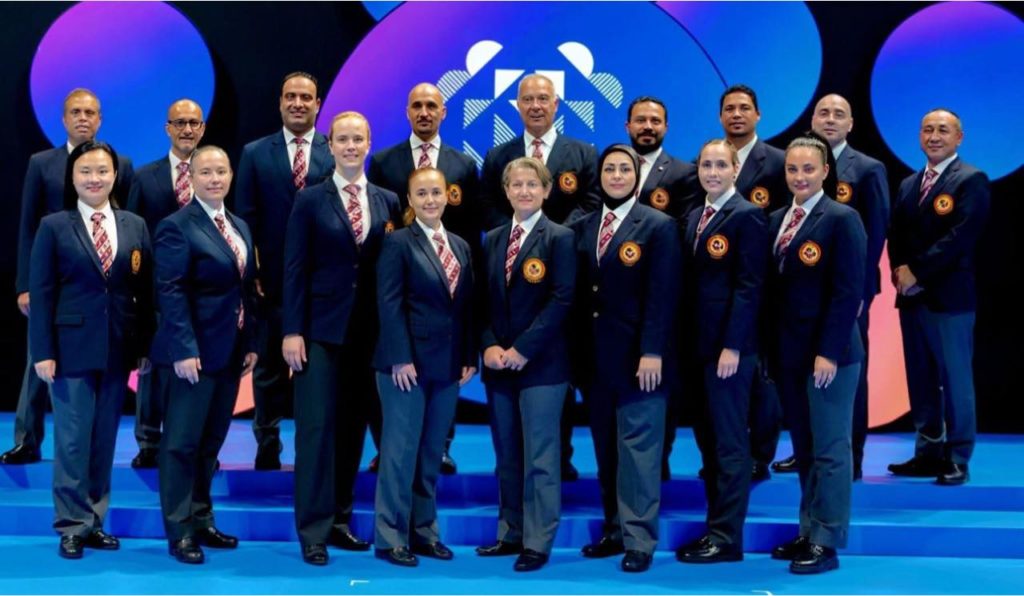The World Karate Federation (WKF) has unveiled the updated composition of its Referee Commission, a body at the very heart of international karate competitions. While the head of the commission remains unchanged, the new structure reflects both continuity and renewal, balancing experienced leadership with fresh international representation.
Leadership: Stability at the Helm
At the top of the Commission, Javier Escalante (Sweden) continues as Chair. Escalante, who has long overseen the refereeing body, remains a pillar of consistency at a time when the WKF is managing both the technical demands of elite karate and the challenges of global expansion. His leadership provides continuity in the interpretation and application of competition rules.
Supporting him are E.M. Altmann (Germany), appointed Secretary, and G. Notarianni (Italy), Assistant Secretary. Both are experienced officials with long-standing involvement in international refereeing. This stable leadership trio ensures that institutional knowledge remains intact.
New Blood and Wider Representation
The most striking feature of the renewed commission is the breadth of international representation, with members drawn from every continent, ensuring that the global karate community is reflected in refereeing governance.
- G. Abdalla (Guatemala) brings Central American representation.
- Y. Abe (Japan) reinforces the deep connection with karate’s homeland.
- M. Alsultan (Kuwait) joins as the Asian Karate Federation (AKF) representative.
- J. Alzaabi (UAE) and H. Faruk (Egypt) strengthen Middle Eastern and North African voices.
- P. Guzel (Turkey) adds further European expertise.
- M. Junting (China) represents one of the fastest-growing karate nations in Asia.
- F. Madani (USA) takes on the role of Pan-American Karate Federation (PKF) representative.
- L.I. Rhoda (South Africa) ensures African karate has a strong seat at the table as the Union of African Karate Federations (UFAK) representative.
This wide-ranging composition underscores WKF’s intent to create a more balanced and inclusive refereeing body, capable of responding to the diverse needs of international competitions.
Balancing Tradition and Evolution
While Escalante’s long tenure as Chair has sometimes raised questions about the pace of change, the commission’s new members highlight a drive toward renewal without rupture. The integration of representatives from Africa, the Americas, and Asia points to a deliberate effort to harmonize refereeing standards across continents.
A Strategic Role Ahead
The WKF Referee Commission will continue to play a decisive role in shaping karate at the highest level — from overseeing the application of competition rules to training referees and adapting to new challenges such as the increasing professionalization of karate and potential reinclusion in multi-sport events.
In short, this new composition demonstrates a clear strategy: strong leadership, fresh voices, and a truly global reach. With this balance, the WKF seeks to ensure that its refereeing system remains both rigorous and fair, supporting karate’s future on the world stage.


